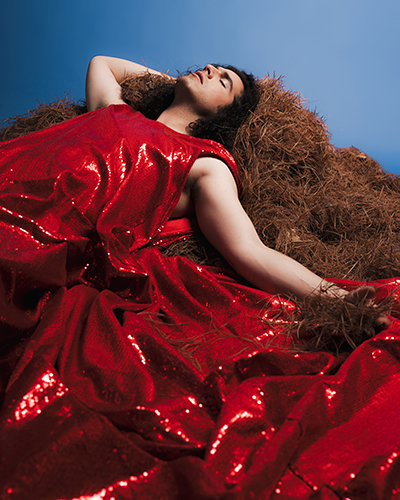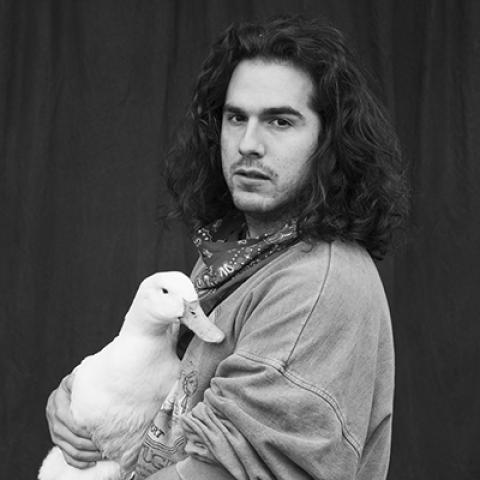
Jeremy Dutcher, photo by Kirk Lisaj
Enter the wholly unique world of Jeremy Dutcher—a Two-Spirit song carrier, classically trained tenor, and Wolastoqiyik member of Neqotkuk (Tobique First Nation) in eastern Canada—live at Banff Centre.
Dutcher’s acclaimed debut Wolastoqiyik Lintuwakonawa unearthed century-old archival recordings of his ancestors and turned them into collaborative, piano-based compositions. Sung entirely in Wolastoqey, his endangered mother tongue, it went on to win the 2018 Polaris Music Prize, and led to collaborations with Yo-Yo Ma and Leslie Feist.
His sophomore album Motewolonuwok ᒣᑌᐧᐁᓓᓄᐧᐁᒃ , which features several English-language originals, was awarded the 2024 Polaris Music Prize, making Jeremy the first double winner.
Unapologetically playful in its incorporation of classical and jazz influences, full of reverence for Wolastoqiyik tradition, and teeming with the urgency of modern-day resistance, Dutcher’s music is like nothing else.
“A moment-defining record.” — CBC Music
“A lustrous work of high drama.” — The Globe and Mail
“There is no one making music like this." — NPR Music
